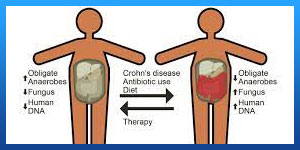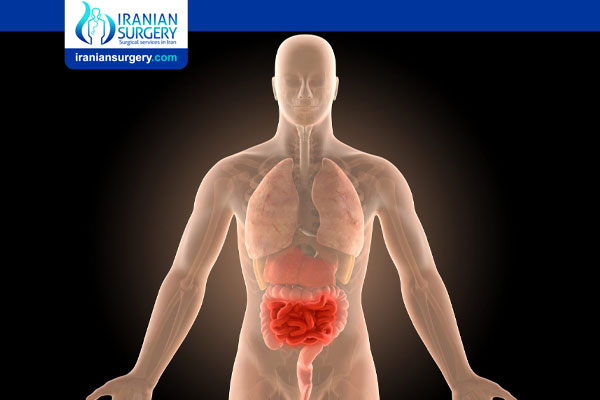Crohn’s Disease Treatment
Crohn's disease treatment guidelines
Treatment
There is currently no cure for Crohn's disease, and there is no single treatment that works for everyone. One goal of medical treatment is to reduce the inflammation that triggers your signs and symptoms. Another goal is to improve long-term prognosis by limiting complications. In the best cases, this may lead not only to symptom relief but also to long-term remission.
Anti-inflammatory drugs
Anti-inflammatory drugs are often the first step in the treatment of inflammatory bowel disease. They include:
. Corticosteroids. Corticosteroids such as prednisone and budesonide (Entocort EC) can help reduce inflammation in your body, but they don't work for everyone with Crohn's disease. Doctors generally use them only if you don't respond to other treatments.
Corticosteroids may be used for short-term (three to four months) symptom improvement and to induce remission. Corticosteroids may also be used in combination with an immune system suppressor.

. Oral 5-aminosalicylates. These drugs include sulfasalazine (Azulfidine), which contains sulfa, and mesalamine (Asacol HD, Delzicol, others). Oral 5-aminosalicylates have been widely used in the past but now are generally considered of very limited benefit.
Read more about : Can crohn's disease kill you?
Immune system suppressors
These drugs also reduce inflammation, but they target your immune system, which produces the substances that cause inflammation. For some people, a combination of these drugs works better than one drug alone.
Immune system suppressors include:
. Azathioprine (Azasan, Imuran) and mercaptopurine (Purinethol, Purixan). These are the most widely used immunosuppressants for treatment of inflammatory bowel disease. Taking them requires that you follow up closely with your doctor and have your blood checked regularly to look for side effects, such as a lowered resistance to infection and inflammation of the liver. They may also cause nausea and vomiting.
. Methotrexate (Trexall). This drug is sometimes used for people with Crohn's disease who don't respond well to other medications. You will need to be followed closely for side effects.
Biologics
This class of therapies targets proteins made by the immune system. Types of biologics used to treat Crohn's disease include:
. Natalizumab (Tysabri) and vedolizumab (Entyvio). These drugs work by stopping certain immune cell molecules — integrins — from binding to other cells in your intestinal lining. Because natalizumab is associated with a rare but serious risk of progressive multifocal leukoencephalopathy — a brain disease that usually leads to death or severe disability — you must be enrolled in a special restricted distribution program to use it.
Vedolizumab recently was approved for Crohn's disease. It works like natalizumab but appears not to carry a risk of brain disease.
. Infliximab (Remicade), adalimumab (Humira) and certolizumab pegol (Cimzia). Also known as TNF inhibitors, these drugs work by neutralizing an immune system protein known as tumor necrosis factor (TNF).
. Ustekinumab (Stelara). This was recently approved to treat Crohn's disease by interfering with the action of an interleukin, which is a protein involved in inflammation.
Antibiotics
Antibiotics can reduce the amount of drainage from fistulas and abscesses and sometimes heal them in people with Crohn's disease. Some researchers also think that antibiotics help reduce harmful intestinal bacteria that may play a role in activating the intestinal immune system, leading to inflammation. Frequently prescribed antibiotics include ciprofloxacin (Cipro) and metronidazole (Flagyl).
Other medications
In addition to controlling inflammation, some medications may help relieve your signs and symptoms, but always talk to your doctor before taking any over-the-counter medications. Depending on the severity of your Crohn's disease, your doctor may recommend one or more of the following:
. Anti-diarrheals. A fiber supplement, such as psyllium powder (Metamucil) or methylcellulose (Citrucel), can help relieve mild to moderate diarrhea by adding bulk to your stool. For more severe diarrhea, loperamide (Imodium A-D) may be effective.
. Pain relievers. For mild pain, your doctor may recommend acetaminophen (Tylenol, others) — but not other common pain relievers, such as ibuprofen (Advil, Motrin IB, others) or naproxen sodium (Aleve). These drugs are likely to make your symptoms worse and can make your disease worse as well.
Vitamins and supplements. If you're not absorbing enough nutrients, your doctor may recommend vitamins and nutritional supplements.
Nutrition therapy
Your doctor may recommend a special diet given by mouth or a feeding tube (enteral nutrition) or nutrients infused into a vein (parenteral nutrition) to treat your Crohn's disease. This can improve your overall nutrition and allow the bowel to rest. Bowel rest can reduce inflammation in the short term.
Your doctor may use nutrition therapy short term and combine it with medications, such as immune system suppressors. Enteral and parenteral nutrition are typically used to get people healthier prior to surgery or when other medications fail to control symptoms.
Your doctor may also recommend a low residue or low-fiber diet to reduce the risk of intestinal blockage if you have a narrowed bowel (stricture). A low residue diet is designed to reduce the size and number of your stools.
Read more about : Metastatic myxofibrosarcoma treatment with the best Iranian oncologist surgeon
Read more about : Rectal Cancer Staging
Read more about : Esophageal cancer treatment
Surgery
Even with medicines, many people will need surgery to treat their Crohn’s disease. One study found that nearly 60 percent of people had surgery within 20 years of having Crohn’s disease.8 Although surgery will not cure Crohn’s disease, it can treat complications and improve symptoms. Doctors most often recommend surgery to treat
. fistulas
. bleeding that is life threatening
. intestinal obstructions
. side effects from medicines when they threaten your health
. symptoms when medicines do not improve your condition
A surgeon can perform different types of operations to treat Crohn’s disease.
For any surgery, you will receive general anesthesia NIH external link. You will most likely stay in the hospital for 3 to 7 days following the surgery. Full recovery may take 4 to 6 weeks.
Small bowel resection
Small bowel resection is surgery to remove part of your small intestine. When you have an intestinal obstruction or severe Crohn’s disease in your small intestine, a surgeon may need to remove that section of your intestine. The two types of small bowel resection are
. laparoscopic: when a surgeon makes several small, half-inch incisions in your abdomen. The surgeon inserts a laparoscope—a thin tube with a tiny light and video camera on the end—through the small incisions. The camera sends a magnified image from inside your body to a video monitor, giving the surgeon a close-up view of your small intestine. While watching the monitor, the surgeon inserts tools through the small incisions and removes the diseased or blocked section of small intestine. The surgeon will reconnect the ends of your intestine.
. open surgery: when a surgeon makes one incision about 6 inches long in your abdomen. The surgeon will locate the diseased or blocked section of small intestine and remove or repair that section. The surgeon will reconnect the ends of your intestine.
Subtotal colectomy
A subtotal colectomy, also called a large bowel resection, is surgery to remove part of your large intestine. When you have an intestinal obstruction, a fistula, or severe Crohn’s disease in your large intestine, a surgeon may need to remove that section of intestine. A surgeon can perform a subtotal colectomy by
. laparoscopic colectomy: when a surgeon makes several small, half-inch incisions in your abdomen. While watching the monitor, the surgeon removes the diseased or blocked section of your large intestine. The surgeon will reconnect the ends of your intestine.
. open surgery: when a surgeon makes one incision about 6 to 8 inches long in your abdomen. The surgeon will locate the diseased or blocked section of large intestine and remove that section. The surgeon will reconnect the ends of your intestine.
Proctocolectomy and ileostomy
A proctocolectomy is surgery to remove your entire colon and rectum. An ileostomy is a stoma, or opening in your abdomen, that a surgeon creates from a part of your ileum. The surgeon brings the end of your ileum through an opening in your abdomen and attaches it to your skin, creating an opening outside your body. The stoma is about three-quarters of an inch to a little less than 2 inches wide and is most often located in the lower part of your abdomen, just below the beltline.
A removable external collection pouch, called an ostomy pouch or ostomy appliance, connects to the stoma and collects stool outside your body. Stool passes through the stoma instead of passing through your anus. The stoma has no muscle, so it cannot control the flow of stool, and the flow occurs whenever occurs.
If you have this type of surgery, you will have the ileostomy for the rest of your life.
How do doctors treat the complications of Crohn’s disease?
Your doctor may recommend treatments for the following complications of Crohn’s disease:
. Intestinal obstruction: A complete intestinal obstruction is life threatening. If you have a complete obstruction, you will need medical attention right away. Doctors often treat complete intestinal obstruction with surgery.
. Fistulas: How your doctor treats fistulas will depend on what type of fistulas you have and how severe they are. For some people, fistulas heal with medicine and diet changes, whereas other people will need to have surgery.
. Abscesses: Doctors prescribe antibiotics and drain abscesses. A doctor may drain an abscess with a needle inserted through your skin or with surgery.
. Anal fissures: Most anal fissures heal with medical treatment, including ointments, warm baths, and diet changes.
. Ulcers: In most cases, the treatment for Crohn’s disease will also treat your ulcers.
. Malnutrition: You may need IV fluids or feeding tubes to replace lost nutrients and fluids.
. Inflammation in other areas of your body: Your doctor can treat inflammation by changing your medicines or prescribing new medicines.
Sources:
https://www.mayoclinic.org/diseases-conditions/crohns-disease/diagnosis-treatment/drc-20353309
https://www.niddk.nih.gov/health-information/digestive-diseases/crohns-disease/treatment


